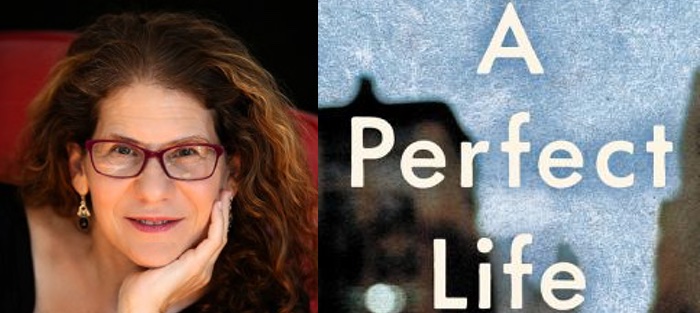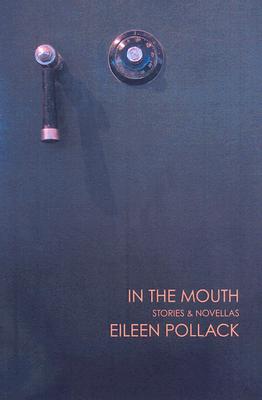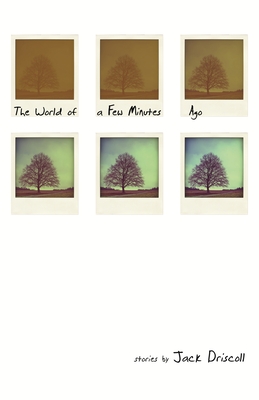Editor’s Note: For the first several months of 2022, we’ll be celebrating some of our favorite work from the last fourteen years in a series of “From the Archives” posts.
In today’s feature, Allie Tova Hirsch talks with Eileen Pollack about sex, science, and several of Eileen’s books. This interview was originally published on December 20, 2017. Eileen’s latest collection of essays, Maybe It’s Me: On Being the Wrong Kind of Woman, came out earlier this year from Delphinium.
Eileen Pollack is the author of several works of nonfiction, short story collections, and novels, including Breaking and Entering (Four Way Books), which was awarded the 2012 Grub Street National Book Prize and named a New York Times Editors’ Choice selection. About her account of sexism in STEM fields, The Only Woman in the Room (Beacon Press), Nobel Prize–winning biologist Carol Greider said, “I immediately saw the truth of what I have lived . . . You would think things might have gotten better for my generation, and for the current generation. But they have not. Eileen Pollack courageously and honestly examines her own life and shows us why.” It was also heralded as “absolutely brilliant” by Meg Urry, president of the American Astronomical Society. Her latest novel, A Perfect Life (Ecco), was praised in the New York Times for its “immediate and moving” descriptions of the everyday work of scientists.
Eileen was my workshop teacher and thesis advisor at the Helen Zell Writers’ Program of the University of Michigan. This semester, she’ll teach her final workshop. Those of us who have been lucky enough to work with Eileen Pollack know her as an exceptionally generous teacher and a force of nature. She pushes her students relentlessly toward the pursuit of greater truth in their fiction and is a champion of tricky, carefully formulated plots and bold, unlikeable characters. A Perfect Life is a true pleasure to read: Eileen’s prose is propulsive, her plot finely tuned, and her characters perfectly un-perfect, particularly her protagonist, Jane, a scientist working to find the marker for a Huntington’s-esque disease called Valentine’s chorea. What complicates matters is Jane’s personal connection to Valentine’s—her mother died from the disease, and she and her sister (who lives a much wilder life than risk-averse Jane) are both at risk for inheriting their mother’s condition. Jane’s situation is further complicated by her romantic interest in a man who may also have the Valentine’s gene.
It was a hoot to sit down with Eileen after the release of the paperback release of A Perfect Life last spring to talk about the portrayal of scientists in fiction, the modern marriage plot, her great sex writing—I will never get over the fact that her characters consummate their relationship at Thunder Beach—and her next novel, The Bible of Dirty Jokes, forthcoming in March 2018 from Four Way Books.
Interview:
Allie Tova Hirsch: Can you tell me the first inkling you had of A Perfect Life?
Eileen Pollack: It goes way, way back to the eighties. I was living in Boston with my then-husband. He was working on his PhD, an MD PhD in genetics research. He was working on a gene for a kidney tumor. Everybody else in his lab was working to find the marker for the gene for Huntington’s chorea, which was the first disease that they were trying to find a marker for. So I was fascinated by that, but what really caught my attention was that there was a woman, Nancy Wexler, who was part of the project. First of all, she was a woman, and I liked the idea that there was this prominent woman scientist working on it, which was pretty rare in biology in those days. Her mother had died of Huntington’s, so she and her sister had a fifty percent chance of having it, inheriting that gene from their mother. It was just kind of horrifying to me that you would be working with this kind of clock ticking in your head, to see whether you had it or not. First of all, would you be able to find the marker by the test, and if you did, would you take the test and then you would find out? I knew she and her sister had vowed never to marry and have kids unless they knew they didn’t have the gene, because they didn’t want to put a spouse and a child through what they went through.
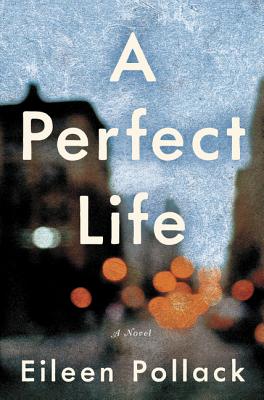 So she was young enough that if she found out she didn’t have it, she could marry and have kids, but the clock was ticking, and if you’re a writer—if you’re a human being—you see the whole book before you. It’s got everything. Her father was pretty much endowing the research, which made it a whole family affair. People were only just starting to thinking about—or weren’t even starting to think about—what this was going to be like, if we could start to test for all this stuff and find out whether we had it or not, so I was thinking ahead. And I knew her, and she was very personable. Her sister came out later with a sort-of-memoir about what it had been like growing up in the family. So I was still very shy and I didn’t actually want to ask them, but I could ask my then-husband anything about the research, and he let me work in his lab for a couple of weeks or maybe a month so I could see what it was like.
So she was young enough that if she found out she didn’t have it, she could marry and have kids, but the clock was ticking, and if you’re a writer—if you’re a human being—you see the whole book before you. It’s got everything. Her father was pretty much endowing the research, which made it a whole family affair. People were only just starting to thinking about—or weren’t even starting to think about—what this was going to be like, if we could start to test for all this stuff and find out whether we had it or not, so I was thinking ahead. And I knew her, and she was very personable. Her sister came out later with a sort-of-memoir about what it had been like growing up in the family. So I was still very shy and I didn’t actually want to ask them, but I could ask my then-husband anything about the research, and he let me work in his lab for a couple of weeks or maybe a month so I could see what it was like.
What did you do in the lab?
Like getting a feel for what it was like to purify DNA or run a blot, so I knew I could describe what it felt like to be in the lab doing the stuff in the lab that my protagonist would be doing. And I have to say that the people in his lab were such a colorful bunch that I didn’t even have to make up the characters. I mean, the characters in Jane’s lab are really—I had forgotten how closely they were based on real people. I shouldn’t say this!
Was that a problem?
Well, I gave a reading in Cambridge a while back, and there were some people in the audience who were friends with my ex, and they came up after and were like, “Oh, yeah, I remember so-and-so.” And I was like, “I thought I made that person up!” I forgot. They were composites, and they were people I got from other places and stuff, but I have always felt that scientists don’t get written enough as real people.
No, they don’t!
When they are written about, they’re completely caricatures. And here are these great characters that nobody was writing about, so I really wanted to write about them.
Well, you give them really full lives. Something I loved about this book is that it’s a love story.
It is a love story. In real life, the woman who Jane is based on, I didn’t know whether she was in love with anybody or not, but I did know she said she wasn’t going to have kids, and I thought, well, what if she did fall in love with someone? It seemed to me as writers we were running out of marriage plots, because in a marriage plot, there has to be something that keeps the lovers apart. All the things that used to keep lovers apart in Victorian times or right up to the twentieth century were things that no longer keep people apart. Like, you can get divorced! If you’re married to the wrong person, you fall in love with somebody else, there’s divorce. It used to be that religion, social class, race kept people apart and for most of us, that’s not an obstacle anymore. You write a novel where somebody’s rich and somebody’s working class and they can get married unless one of the people is a royal jackass.
True. Maybe their parents are mad about it, but [the social stigma] doesn’t actually get in the way.
Right. So I thought, wow, this is a real thing. Are people not going to marry other people because one of them has a gene for a terrible disease? I thought, OK, who is she going to get involved with? Woody Guthrie died of Huntington’s, which meant that his son Arlo had a fifty-fifty chance of having inherited it himself. But Arlo had this completely opposite point of view, which was that he never wanted to be tested. If they came up with a cure, fine, but to just be tested and not know was ridiculous. He had already married and already had kids, and he said that he didn’t care one way or another, that you couldn’t plan your life according to some test, and having a child was a blessing and a miracle, even if you only had the child for a day. You’ve had to take life as it came, whatever happened. So I thought, sure, she would fall in love with Arlo, and Arlo would fall in love with her, and he would be the worst person in the world for her to marry.
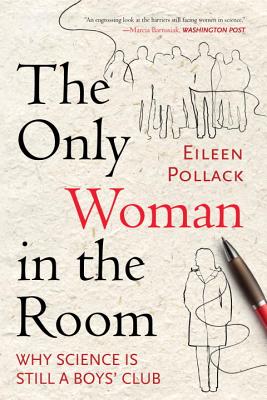 Yes, there are a couple of sentences that are like, “He was the worst person,” and you’re like, “Well, they’re going to get together!” It’s very classic, in a way.
Yes, there are a couple of sentences that are like, “He was the worst person,” and you’re like, “Well, they’re going to get together!” It’s very classic, in a way.
Yeah, but it’s fraud. Just because you get together doesn’t mean somebody doesn’t have the gene.
Personally, I love marriage plots. I think they’re fantastically difficult, having so much of the book’s tension rest on the question of whether they’re going to get together. And of course all the stuff about them having Valentine’s chorea is all wrapped up in it. How did you make sure it wasn’t over the top?
You know, I tend to be over the top.
I don’t think it is!
So I have to make sure I’m not super over the top. With statements like, “He is the worst possible person,” or “This is the worst case scenario,” you start to say, “This is impossible, this is ridiculous.” Then you realize that people are really facing this all the time. My students are always so afraid that if they try to have something dramatic happen, it’s going to be melodramatic and over the top, and I always say to them, “So? Make sure it’s not.” The only difference between drama and melodrama is whether you’re milking it or not. So if you’re trying to make your readers feel drama and you’re stoking it up, then it becomes melodramatic, but if you’re playing it straight, then it’s drama. And that’s what I was doing.
Plus, they’re scientists, so I had to have something super dramatic and full of emotion to offset, for the reader, the drudgery of reading about what I thought some people would be afraid of, which is reading about DNA, reading about running blots.
We always forget about how tedious science is. You hear about these big breakthroughs.
Unless you live with a scientist. Then you realize what it’s really about.
Something else I loved about the romance in the book is that when sex happens, it’s just very contained and minimalist. We’ve all read so much bad sex writing. What advice would you give to writers who are trying to write about sex? What are your rules for this?
I wrote a lot about sex in Breaking and Entering, so it’s something I’ve thought about a lot. I kind of overdid it in Breaking and Entering and had to pull back, but you can always pull back a little. I just thought about what I do or don’t like when I’m reading it. I don’t like icky words that get too technical, so I would only use words for things if I have to, and if they’re more the slang version that a person would actually say in this situation.
But I think the main things about sex scenes is, it’s like any scene in a story or novel: it’s only there because it has something to do with revealing character or the art of that character’s desire and narrative arc. It’s never there just for its own sake. So why is this sex scene here? It’s to show something about Jane? What does she want? Is she going to get it? How does this move us along that arc? Thematically, what’s the book about? The book is about what it means to try to live a perfect life.
So that’s all I’m thinking about when I’m writing that scene where they’re having sex: Where are they? Who’s she? Who’s he? You can write anything about a sex scene, but what about their making love that time has to do with whether or not life can be perfect, and how you think about having a child and being perfect, or is this the perfect man for you or not? That’s what the book is about, right? You never write a sex scene to be sexy—you write a sex scene because you want to know about these two particular people—or three, or five, or however many are involved. You want to know what is it about their characters that’s important or interesting given the arc of the plot or the thematics of the novel? If you highlight those aspects of what you’re doing, then anybody who’s had sex can fill in the rest.
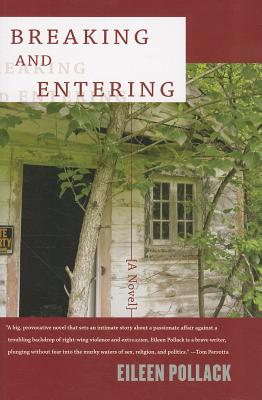 It’s all about what’s not on the page.
It’s all about what’s not on the page.
You let it sit and you go back to it and see if there’s anything icky. You can always cross it out.
I loved that they got together at Thunder Beach, though. I saw a little authorial flourish of, “Wouldn’t it be great . . . ”
I think when she comes back to the lab with Maureen, she says, “Oh, yeah, I had sex with my boyfriend at Thunder Beach.”
Yeah, she doesn’t believe it.
She’s like, “Give me a break.”
I loved Maureen, too. She’s great.
And that’s the other love story.
You know, it was funny being in your class and then reading this book, because everything you say about plot mechanics—how to drive stories forward by assessing what characters want and don’t want—it’s all here in this book. You’re consistent!
At least I practice what I preach.
The biggest plot engine in this book is who has the gene and who doesn’t. In the end, how did you decide?
First of all, if you notice, in the very first paragraph of the novel, you know she’s got a daughter. When you do that, most people forget that you’ve ever said it, so they forget that they know anything about how the book is going to turn out. That was one way I had of not making it melodramatic, because I’m saying at the beginning, “Look, I’m not withholding anything from you. It’s not a big secret.” Given my genetics, the character is saying, how do I explain to my daughter how she came to be, why I had her? I just made sure that I didn’t know who was going to have it or not until I got to the point that Jane develops the blots. I didn’t want to know before she knew, because that would just stack the deck.
Yes. It would have been present in the writing.
So I didn’t know what was going to happen. By the time I got to that point, I had a lot more information to go on. You can’t make everybody be OK because then the reader feels like, “Then why did you have me wrung out like a towel to get here?” And you can’t have everybody die.
Only Shakespeare can kill everyone in the end.
Yes, and how is that going to work? I honestly didn’t decide it until I got there, and it was based on all sorts of considerations. So I gave it to the ones I gave it to, spared the ones I spared, wrote the whole book, finished, and I thought, OK, it all worked. So I had my first agent and [the book] went out a lot. That’s the whole story of why it took so long to get the book done. But then I gave it to my new agent, Jenny Ferrari Adler —
Yep. Former student. She said, “I love the book, but I think somebody else has to die at the end. It’s not sad enough.” So Laurel had that thing where she walks across the ice, and Jane thinks she’s going to go through, but she comes back. It’s just for the rest of that, you get the idea that Laurel is never going to be stable and she’s just kind of out there. As soon as Jenny said that, I thought, “You’re right.” As long as Laurel doesn’t die in an expected way. She dies in a sense from having thought she would have and finding out she didn’t.
Which makes so much sense for her character.
Yeah. As soon as Jenny said that, it took me literally three seconds to know that the only change I was going to make was that Laurel was going to go through the ice, and then I started to cry. I thought, “Yep, if it’s going to make me cry . . .”
You feel so bad for Jane, too, because she’s been trying this whole book to get together with Laurel. Whenever she buys all the delicious food and then Laurel doesn’t show up!
In real life, Nancy Wexler’s sister isn’t like that, but I read about other people and how it’s very common if you have a parent die from one of these rare genetic diseases, that you assume you have it, especially if you’re the one that looks like the parent. A lot of those people live these really reckless lives. They just assume they’re going to die young so they don’t go to college, they rack up all sorts of credit card debt, and they do crazy stuff. Sometimes it’s hard for them to find out they don’t have a disease. I thought, what an awful way to be screwed up, by finding out that you’re OK.
You have all your characters ask all these existential questions, and so we know how each of the characters who have the potential to have this gene feel about mortality. Did you have to ask yourself these questions as you were writing the book?
I ask myself those questions all the time. That’s why I seem to keep writing books about people who are facing mortality. I think since I was a little kid, I was like, “How is everyone else so OK with the fact that we’re going to die, and I’m so not OK with it? Everybody just seems OK with it. It’s not OK!” In fact, the character I’m writing now, she studies immortality. She’s a professor of immortality studies, because she can’t accept [death], so she thinks science is going to come up with a way that we won’t have to die. I think eventually science will find a way, but the question is, what’s that going to be like?
A Perfect Life was written before The Only Woman in the Room. How long ago did you write A Perfect Life? This was the eighties, right?
I started it in the late eighties, early nineties. I know I was working on it when we moved [to Ann Arbor] in 1994. I remember the first person to see a draft of it was Charlie Baxter. I think my first agent started sending it around maybe 1999, 2000, 2001. Most of what I got was, the editors thought that because Jane was a scientist, she was cold. That they would want to read it if she was home taking care of her mother. One editor said, “I would read it if it was the year she spent helping her mother.” But behind it all was this feeling I couldn’t put into words until one editor said straight out: “Men don’t read books written by female authors, and women’s book groups will not read anything with any science in it. We just don’t know how we market this.”
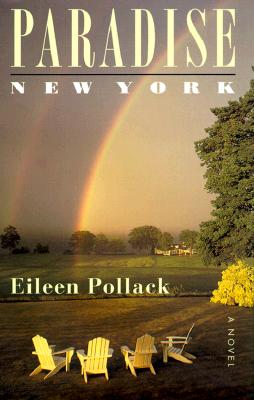 If the book was about her caretaking, it would somehow be more acceptable.
If the book was about her caretaking, it would somehow be more acceptable.
Right. And I think they saw her as cold because instead of trying to solve this disease by taking care of people who have it, they way doctors would, she’s doing research, she’s doing the science, she’s thinking about percentages and numbers. But they also couldn’t figure out what to do with a book that both had a plot that they saw as a medical thriller and was also literary. The prose and the characters are supposed to matter. They were unclear, it seemed, on what you do with that. I said, “But there are so many examples of literary novels that have a strong plot.”
It made me think of Anne Patchett’s State of Wonder (HarperCollins, 2011), which came out a couple of years earlier.
And helped pave the way. Allegra Goodman also had a novel, Intuition (Dial, 2006), and there was Andrea Barrett…though she couldn’t give her stuff away. She was having a hard time getting her stuff published until one of her books won a National Book Award. She writes about Victorian biologists, so it’s more . . .
Yes, that would fall under historical fiction, so it’s more palatable.
So it wasn’t an absolute thing. When I published The Only Woman in the Room, that was hard to get published, too, because it was the same thing: People said, “Nobody cares about women scientists. Scientists don’t want to read touchy-feely things.” They had a hundred reasons.
Have you heard from scientists who have read this book?
Yes. They love it, because they never get to read about themselves.
Because they have actual personal lives!
So then the tide turned in the time since I’d originally written the book. In some way, women scientists were now a hot field. So when my new agent sent out the same book, all the same houses that had passed on it originally were now for it. It was sort of an auction-y kind of thing, and the response has been great. Similarly, with Bible of Dirty Jokes, which is coming out next year, all I heard was, “Nobody wants a raunchy book from a woman author.” Then Bridesmaids came out, and we have Amy Schumer, we have Sarah Silverman. It’s now allowed for women to be raunchy. That’s what it’s about: Can women tell a dirty joke and the joke not be on them? Now everyone’s like, “Oh, that’s fine!” You kind of have to have faith in what you’re doing and wait for people to catch up.
We talked a little bit before I started the interview about books that deal with Jewishness and the ones that don’t. Has it been easier for you to sell a “Jewish book?”
I think that’s so complicated. It goes in waves. I think there’s a way to be young and Jewish and hip now where it’s fine, and it’s maybe even an advantage.
Like Jonathan Safran Foer?
Yeah. Some people call it “Holocaust lite.” Or the way the guys do it, someone like Nathan Englander, but it’s edgy, and it’s got sex in it, it’s funny, it’s fine. I think I was at the tail end for a while of “Jewish-American fiction has been done, it’s old-fashioned.” It was hipper to be some other ethnicity. It went in a wave and came back. I grew up loving Malamud, I love Philip Roth. I grew up in a hotel in the Catskills. Pretty Rothian place. I read some of Roth’s novels, and one of them, Professor of Desire, is set at a hotel in the Catskills. I said, “I can do that! I’m going to be the female Philip Roth!” Turned out, nobody wanted the female Philip Roth.
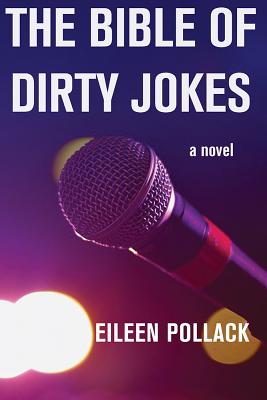 The male Philip Roth is already there and he’s more marketable.
The male Philip Roth is already there and he’s more marketable.
Well, he’s marketable to a male audience. Women have typically not liked Roth because they don’t like how he treats women and sex, and who were the women who would want a female Philip Roth? I thought it was the answer to Philip Roth.
I think the real problem—and it’s not just for me, I think I’m just giving examples of it—is that the publishing industry is always trying to fit you into some category that sold well six months before. If you’re a little behind the curve, or ahead of the curve, or out of the curve . . . so much depends on the marketing department saying, “We know how to market this.” Writers sometimes are trying to be original, and it goes against the grain of what the marketing department is looking for, which isn’t original.
Your book Paradise, New York is about the Catskills, and you’re returning to that place again. How was the experience of pitching that book versus pitching your upcoming novel?
Well, Paradise was the first novel I wrote, and you never know what you’re doing when you write your first novel. I’m glad I wrote it. I love it, but it’s must more over the top than I would do now. I wanted to be comic, but I didn’t know quite how to blend the comic and the dark. I think I’ve done much better at it in The Bible of Dirty Jokes. I’m more confident. I know much more about structure and form and what I’m doing. And it’s different material. It’s not really set in a hotel. The family’s hotel has pretty much died by the time the novel starts. It’s sort of digging up family history, and pursuing who your family really was and why you were kept in the dark, what you’re going to do about it once you know. It’s an older character, an older woman who was kind of kept down in certain ways, and kept out of the loop, and kept from doing what she wanted to do, and treated as if she were too innocent. She gets her chance in middle age to figure out what’s what, and her true self comes out. She turns out to be the most resourceful and gutsy member of the family. It’s really one of these “older woman triumphs” stories.

